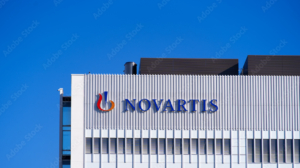![EB_Autumn_2018_YUMAB.jpg Reference [1]?Schafer, S. et al. Nature 552, 110115 (2017)](https://european-biotechnology.com/wp-content/uploads/2024/04/EB_Autumn_2018_YUMAB.jpg)
Fully human antibodies for advanced immunotherapies
Answering the increasing demand for novel fully human antibodies in immunotherapy, German biotech pioneer YUMAB GmbH accelerates drug discovery and development with a comprehensive and versatile technology platform.
Immunotherapies based on fully human monoclonal antibodies have been extremely successful since their first approval in 2002 (AbbVie’s Humira®, adalimumab), and today, the majority of newly approved antibody drugs are of human origin. This trend calls for a paradigm shift in antibody discovery and development to an advanced process that enables flexible drug design and accelerates translation into clinics. YUMAB is a pioneer in fully human antibody development that offers an optimised discovery process tailored to the need of the pharmaceutical industry for a rapid, robust, and reliable generation of novel drug candidates.
Diverse and safe antibody leads
The YUMAB® platform generates fully human antibodies that are the closest to natural germline among those available on the market. Unlike animal-derived, chimeric, humanised, or synthetic antibodies, each YUMAB® antibody combines the maximum epitope diversity of very large universal antibody libraries with minimal immunogenicity. This approach is also efficient for difficult targets, such as G-protein coupled receptors (GPCRs), ion channels, and even whole cells or virus particles. Additionally, YUMAB optimises antibody properties, such as affinity, stability, or interspecies X-reactivity in early discovery. First antibody candidates are identified within weeks and the versatility of the technology allows flexible manipulation and variable drug formats. YUMAB’s advanced human antibodies cover a broad therapeutic spectrum. Tailored to customer needs, YUMAB also generates custom libraries, and offers antibody engineering in fee-for-service or attractive licensing options.
Enleofen – a success story
In early 2016, YUMAB started a cooperation with Stuart Cook and Sebastian Schäfer at the National Heart Centre Singapore and Duke-National University Singapore Medical School to generate novel antibody candidates that target interleukin-11 (IL-11) in fibrotic disease. Their research revealed the critical role of IL-11 in fibrosis and set the stage for potential anti-IL-11 therapies that could transform the treatment of fibrosis of the lung, heart, liver, kidneys, and other organs[1]. In April 2017, Cook and Schäfer founded Enleofen Bio Pte. Ltd. with a focus on the development of first-in-class antibody therapeutics for the treatment of fibrotic diseases. Using YUMAB’s expertise in antibody engineering, the startup rapidly generated high-quality antibodies as a basis for the development of antifibrotic therapies. Owing to YUMAB’s rapid and reliable antibody platform, we could shorten preclinical development and are now confident to accelerate the translation of a novel antifibrotic antibody candidate from bench to bed, said Stuart Cook, Enleofen Bio’s director. Successful drug development requires interdisciplinary expertise and technologies that are most easily accessed through collaborations, added André Frenzel, CSO of YUMAB. Being able to support our colleagues in Singapore in their quest to rapidly translate their new insights into fibrosis into a startup company was very rewarding for us, and we are excited to have played a small but crucial part in that process.
First published in European Biotechnology Magazine Autumn 2018 edition.



 adobe stock photos - Michael Derrer Fuchs
adobe stock photos - Michael Derrer Fuchs 